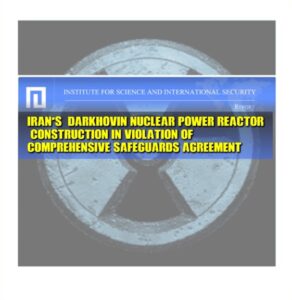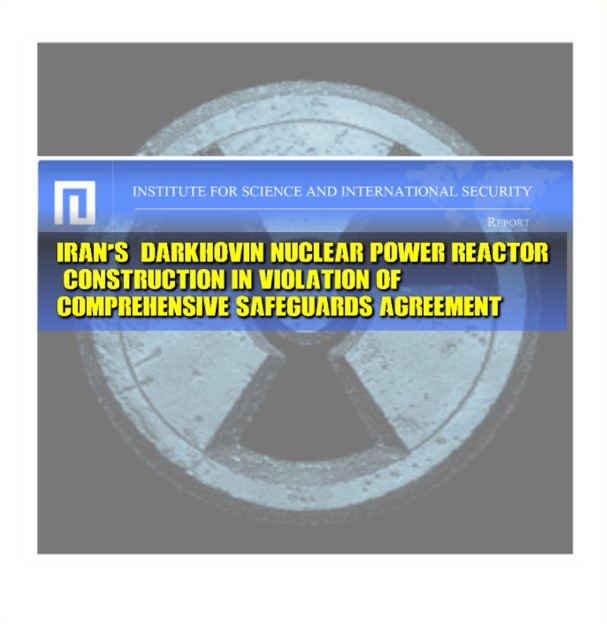 Darkhovin, nuclear power reactor, aka IR-360 or Karun nuclear power reactor, also variously referred to as Ahvaz, Darkhouin, Esteghlal, and Karun, is located on the Karun River south of the city of Ahvaz. A facility at this location is reportedly under the control of the Islamic Revolution Guard Corps, and is said to be suspected of being an underground nuclear weapons facility of unspecified nature
Darkhovin, nuclear power reactor, aka IR-360 or Karun nuclear power reactor, also variously referred to as Ahvaz, Darkhouin, Esteghlal, and Karun, is located on the Karun River south of the city of Ahvaz. A facility at this location is reportedly under the control of the Islamic Revolution Guard Corps, and is said to be suspected of being an underground nuclear weapons facility of unspecified nature
In its February 26, 2024, quarterly Iran safeguards report, the IAEA listed the start of construction of the Darkhovin nuclear power reactor as a violation of Iran’s mandatory reporting requirements under subsidiary arrangements to Iran’s comprehensive safeguards agreement (CSA), modified Code 3.1. The code requires Iran to provide notification and design information when it has taken a decision to build or authorize construction of a nuclear facility, let alone start construction of a new nuclear facility. Iran has failed to do so for the IR-360 reactor, where the 360 typically refers to its nominal electrical output in units of megawattselectric (MWe). The Atomic Energy Organization of Iran (AEOI) has stated it has no intention of coming into compliance with its Code 3.1 obligations, creating the standoff over this issue.
OFFICE OF THE DIRECTOR OF NATIONAL INTELLIGENCE Iran’s Nuclear Weapons Capability and Terrorism Monitoring Act of 2022 June 2023 Report
- Iran continues to increase the size and enrichment level of its uranium stockpile beyond JCPOA limits. Iran continues to exceed JCPOA restrictions on advanced centrifuge research and development, and continues uranium enrichment operations at the deeply buried Fordow facility, which was prohibited under the JCPOA. Iran has been enriching and accumulating uranium hexafluoride (UF6) up to 60 percent, U235 since April 2021, and continues to accumulate UF6 enriched up to 20 percent.
- In 2021, the IAEA verified that Iran conducted research on uranium metal production and has produced small quantities of uranium metal enriched up to 20 percent. While Iran made this enriched uranium metal as part of its research and development for a new type of reactor fuel, the production of uranium metal was prohibited under the JCPOA as a key capability needed to produce nuclear weapons.

